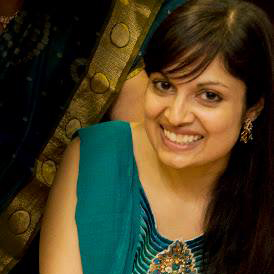Room’s Rachel Thompson spoke with Shashi Bhat, Editor of EVENT, for our series on literary and cultural magazines (#LitMagLove).
Room‘s Rachel Thompson spoke with Shashi Bhat, Editor of EVENT, for our series on literary and cultural magazines (#LitMagLove). Shashi‘s novel The Family Took Shape (Cormorant, 2013), was shortlisted for the Thomas Raddall Atlantic Fiction Award. She received an MFA in fiction from The Johns Hopkins University and a BA from Cornell University. No stranger to literary magazines, she’s had stories in PRISM international, The New Quarterly, The Threepenny Review, The Missouri Review and EVENT before she became editor.
EVENT is an award-winning, internationally recognized literary magazine that publishes fiction, poetry, non-fiction and book reviews by emerging and established writers three times a year. Like the other #LitMagLove interviews, the focus of their conversation is on advice for writers who wish to submit to the journal, now in its 44th year of publication.
Who are your first readers at EVENT and how do you make decisions about what appears in the magazine after first reading?
Our first readers are a team of volunteers who read the general submissions and separate them into a yes/maybe pile and a no pile. The yes/maybes go to our fiction editor, Christine Dewar, who selects the top ones to be discussed by the our fiction board (Christine, me, EVENT’s managing editor Ian Cockfield, and reviews editor Susan Wasserman). We meet once every month or two and discuss an average of five stories per meeting (over delicious lunch at Christine’s house). We chat about the stories and try to reach a consensus and we eat quiche. What’s most thrilling is when someone comes to the meeting and says they’d be willing to fight for a story. Those are usually the stories we all agree on anyway.
Poetry goes through its own set of first readers, then to our poetry editor, Joanne Arnott. We meet and select the poetry together.
Most of our creative non-fiction comes through our contest each spring. Those pieces are read by me and a team of volunteer contest readers, and then go to our guest judge, who selects the winners.
What is the most common problem you find with submissions to EVENT?
The most common issue is a lack of freshness, and this can happen in plots, characters, imagery, in any area of a story. For example, we receive a fair number of stories about North Americans in their twenties feeling emotionally lost while travelling in other countries. When you receive a story that deals with themes and subjects you’ve seen so many times before, there needs to be something original, something startling about it to set it apart.
We’re looking for well-crafted language, distinctive voices, causality in the plots…but really I think we’re just looking for stories that move us. My advice is what I tell my creative writing students: read your piece aloud. You’ll better understand your piece’s rhythms and cadences, notice syntax or clarity issues, and catch typos and errors you might not otherwise. Nothing marks a professional like an error-free manuscript.
Do you think it is important for emerging writers to submit to literary journals?
Yup, I do. Publishing in literary journals is the street cred that shows agents and editors you’re serious and that there are people besides yourself who think you can write. Not to imply that literary journals are only a means to an end. Literary journals print Canada’s freshest writing. I think it’s important for emerging writers to be aware of what’s going on in CanLit today.
Who was your first publisher?
The Missouri Review accepted my first story and I felt giddy and relieved and grateful. It’s a magazine I respect, which was great because I’d been having nightmares about my writing appearing in a gas station newsletter. EVENT accepted a story of mine later that year, so my being the editor now is a fun twist. Receiving an acceptance today still feels the same except that now I have even more gratitude for the people who read my submission and discussed it and edited it and put it in print.
What have you learned from being on the other side of the submissions process?
Being on this side of the submissions process has influenced my own fiction writing in that I’m more focused on conciseness and precision—I’m more conscious of baggy language. It’s heightened my awareness of audience as well, of which passages are more for the writer than for the reader.
What are things you do to maintain the diversity of writers published EVENT?
We achieve diversity partly through searching for variety in the kinds of stories we print, and consequently, in contributors. I’m of East Indian background and explore multicultural themes in my own writing, and our poetry editor, Joanne, is a Métis/mixed-blood writer and a founding member of Aboriginal Writers Collective West Coast. At our last meeting we both got excited because there was a submission from Yellowknife. EVENT’s policy only allows writers to appear in our journal once every two years, and I like how this means we’re always searching for new voices. Of course, writing quality is always the most crucial factor to accepting a submission. But part of our mandate at EVENT is to strive to reflect the diversity of our reading and writing community; we want our journal to be multidimensional.
What other literary journals do you read?
I like The New Quarterly, Room, Riddle Fence, The Puritan. I only recently discovered Riddle Fence; I admire their creativity.














